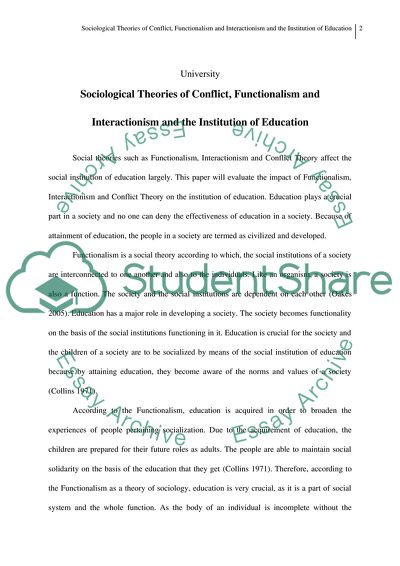Cite this document
(Sociological Theories of Conflict, Functionalism and Interactionism for Educational Institutions Essay Example | Topics and Well Written Essays - 1250 words, n.d.)
Sociological Theories of Conflict, Functionalism and Interactionism for Educational Institutions Essay Example | Topics and Well Written Essays - 1250 words. https://studentshare.org/education/1722579-sociological-theories-one-social-institution-family-health-care-religion-education-mass-media-political-or-economic
Sociological Theories of Conflict, Functionalism and Interactionism for Educational Institutions Essay Example | Topics and Well Written Essays - 1250 words. https://studentshare.org/education/1722579-sociological-theories-one-social-institution-family-health-care-religion-education-mass-media-political-or-economic
(Sociological Theories of Conflict, Functionalism and Interactionism for Educational Institutions Essay Example | Topics and Well Written Essays - 1250 Words)
Sociological Theories of Conflict, Functionalism and Interactionism for Educational Institutions Essay Example | Topics and Well Written Essays - 1250 Words. https://studentshare.org/education/1722579-sociological-theories-one-social-institution-family-health-care-religion-education-mass-media-political-or-economic.
Sociological Theories of Conflict, Functionalism and Interactionism for Educational Institutions Essay Example | Topics and Well Written Essays - 1250 Words. https://studentshare.org/education/1722579-sociological-theories-one-social-institution-family-health-care-religion-education-mass-media-political-or-economic.
“Sociological Theories of Conflict, Functionalism and Interactionism for Educational Institutions Essay Example | Topics and Well Written Essays - 1250 Words”. https://studentshare.org/education/1722579-sociological-theories-one-social-institution-family-health-care-religion-education-mass-media-political-or-economic.


